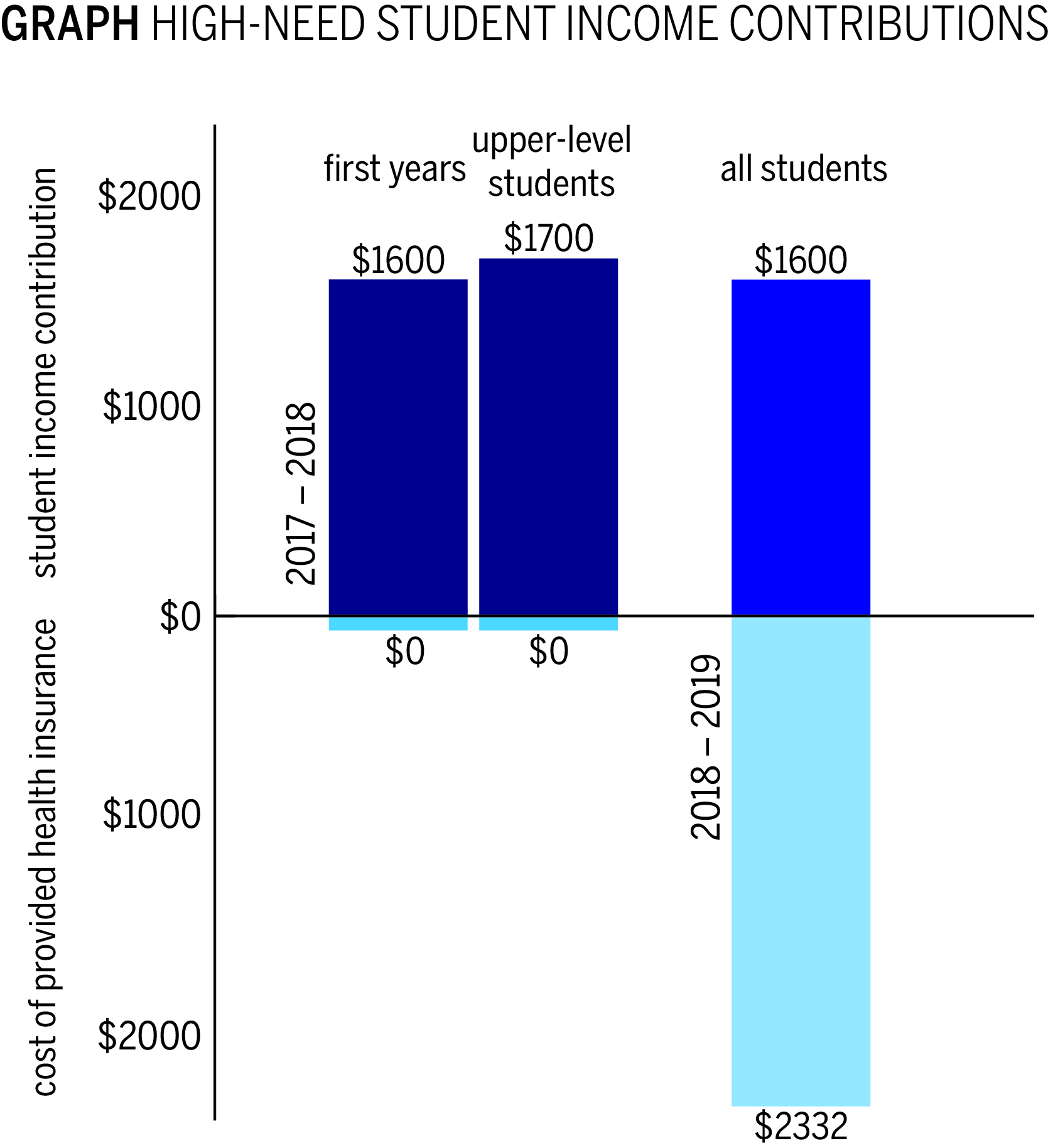
Starting next year, Yale will give students with no expected parental contribution free insurance and reduce these students’ expected summer income contribution to $1,600 for all four years.
The new initiatives mark a change from the current policy, under which the expected summer income contribution is $1,600 for all first years and $1,700 for upper-level students classified as high need. The hospitalization insurance costs — which are eliminated for students with no expected parental contribution under the new initiative — amounted to $2,332 per student this year. Also, for the third consecutive year, the University will not increase student effort expectations for any students.
“We know that the cost of a Yale education extends beyond just the cost of tuition,” said Scott Wallace-Juedes, director of undergraduate financial aid. “The new start-up grants ensure that our students with the greatest financial need have what they need to succeed inside and outside the classroom. By adding insurance coverage, the University is furthering its extraordinary commitment to making the Yale experience affordable for everyone.”
2017 marks the third consecutive year that the University has rolled out new initiatives to support low-income students.
Previous initiatives included reducing student effort amounts and introducing the “high need” category in financial aid considerations. Before the 2016–17 academic year, first years were expected to contribute $1,600 of their summer earnings, and upper-level students were expected to contribute $3,050 a year. Last year, the amount for upper-level students dropped to $2,600, or $1,700 for those classified as high need.
The University also created a start-up grant as part of its $2 million financial aid initiative announced in December 2015. Last year, 52 students received the $2,000 grant, aimed at helping low-income first years with initial expenses; this year, the number rose to 202. These students also receive $600 in each of their following three years at Yale.
“We piloted it two years ago to see what the student reaction would be, what the administration of the start-up grant would look like, and there was always a hope of expanding it,” Dean of Undergraduate Admissions Jeremiah Quinlan said.
The increase in the number of students receiving the start-up grant followed from the Financial Aid office tweaking its policy regarding eligibility for the grant, Director of Financial Aid Caesar Storlazzi said. Last year, the office gave the grant to students whose families earn less than $65,000 and do not own a home or a business, Storlazzi said. This year, the criteria for receiving the grant was just earning less than $65,000.
The University also offers a $1,000 allowance to international first years with significant financial need, as well as a $1,500 annual vacation allowance for all international students on financial aid to help them with meals, housing and travel during breaks.
“In less than two years, Yale’s senior leaders have identified and approved more than a half-dozen specific policy initiatives to supplement Yale’s already generous need-based aid policies, which together represent an additional annual investment of more than $5 million for undergraduate financial aid,” Quinlan said. “These meaningful changes have already helped our current Yale students and will enhance Yale’s ability to attract top students from all socioeconomic backgrounds.”
Yale’s estimated financial aid budget for 2017–18 academic year is $145 million.
Anastasiia Posnova | anastasiia.posnova@yale.edu .







